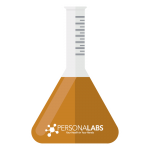Use:
This test is useful in the diagnosis and monitoring of patients with defects of organic acid metabolism and amino acid metabolism existing from birth, as well as urea cycle defects, and defects of the mitochondrial respiratory chain.
Recommended For:
People with chronic illnesses and neurological disorders who often excrete several abnormal organic acids. Those who use oral antibiotics, have diets with high sugar intake, or have immune deficiencies.
Special Notes:
No special preparation is necessary prior to sample collection.
Tests Included:
Estimated Turn Around For Results:
2-10 Business Days
For an exact turnaround time for results, please contact us at Personalabs and we will contact the lab on your behalf as turnaround times vary depending on testing location or lab testing provider.
Understanding the Role of Organic Acids in Metabolic Health
Organic acids are key metabolites excreted in urine that offer deep insight into individual biochemistry and overall health. Through a comprehensive urine test, clinicians can evaluate organic acid markers tied to nutrient processing, amino acid metabolism, carbohydrate metabolism, and fatty acid oxidation. Abnormal levels may reflect imbalances in the citric acid cycle, oxidative stress, or dysfunction in mitochondrial energy production. Elevated lactic acid, pyruvic acid, or succinic acid, for example, can point to disruptions in glycolysis or the citric acid pathway. These biomarkers often reveal early signs of systemic inflammation, dysbiosis in the gastrointestinal tract, and inborn errors of metabolism. Organic acid testing also helps detect deficiencies in essential cofactors such as B vitamins, riboflavin, biotin, pantothenic acid, and vitamin B12, which are crucial for enzyme function and methylation. In clinical practice, this method is valued in screening for metabolic disease, identifying toxicant exposure, and guiding personalized medicine strategies for mood, digestion, insulin resistance, and immune system resilience. Whether supporting a patient with chronic fatigue, unexplained weakness, or suspected clostridia or yeast overgrowth, the OAT (organic acid test) offers physicians a precise, noninvasive laboratory tool to assess functional nutrition, evaluate pathology, and target the root causes of disrupted metabolic function.




